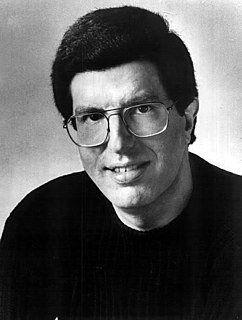A Quote by Kenneth E. Boulding
No science of any kind can be divorced from ethical considerations... Science is a human learning process which arises in certain subcultures in human society and not in others, and a subculture as we seen is a group of people defined by acceptance of certain common values, that is, an ethic which permits extensive communication between them.
Related Quotes
Even personal tastes are learned, in the matrix of a culture or a subculture in which we grow up, by very much the same kind of process by which we learn our common values. Purely personal tastes, indeed, can only survive in a culture which tolerates them, that is, which has a common value that private tastes of certain kinds should be allowed.
The most remarkable discovery made by scientists is science itself. The discovery must be compared in importance with the invention of cave-painting and of writing. Like these earlier human creations, science is an attempt to control our surroundings by entering into them and understanding them from inside. And like them, science has surely made a critical step in human development which cannot be reversed. We cannot conceive a future society without science.
I believe, indeed, that overemphasis on the purely intellectual attitude, often directed solely to the practical and factual, in our education, has led directly to the impairment of ethical values. I am not thinking so much of the dangers with which technical progress has directly confronted mankind, as of the stifling of mutual human considerations by a 'matter-of-fact' habit of thought which has come to lie like a killing frost upon human relations. Without 'ethical culture' there is no salvation for humanity.
In every human society of which we have any record, there are those who teach and those who learn, for learning a way of life is implicit in all human culture as we know it. But the separation of the teacher's role from the role of all adults who inducted the young into the habitual behavior of the group, was a comparatively late invention. Furthermore, when we do find explicit and defined teaching, in primitive societies we find it tied in with a sense of the rareness or the precariousness of some human tradition.
One of the chief inhibitions to human progress arises because of the extreme slowness with which the advances in knowledge become translated into action for the benefit of society as a whole. There is no step more important for the removal of that inhibition than that of providing for intimate contact between the leaders in the fields of pure and applied science.
The antagonism between science and religion, about which we hear so much, appears to me to be purely factitiousfabricated, on the one hand, by short-sighted religious people who confound a certain branch of science, theology, with religion; and, on the other, by equally short-sighted scientific people who forget that science takes for its province only that which is susceptible of clear intellectual comprehension; and that, outside the boundaries of that province, they must be content with imagination, with hope, and with ignorance
It cannot be denied that Islam, regarded as an ethical ideal plus a certain kind of polity - by which expression I mean a social structure regulated by a legal system and animated by a specific ethical ideal - has been the chief formative factor in the life-history of the Muslims of India. It has furnished those basic emotions and loyalties which gradually unify scattered individuals and groups, and finally transform them into a well-defined people, possessing a moral consciousness of their own.
The society of merchants can be defined as a society in which things disappear in favor of signs. When a ruling class measures its fortunes, not by the acre of land or the ingot of gold, but by the number of figures corresponding ideally to a certain number of exchange operations, it thereby condemns itself to setting a certain kind of humbug at the center of its experience and its universe. A society founded on signs is, in its essence, an artificial society in which man's carnal truth is handled as something artificial.
I don't think they understand it's as important as math and science. It rounds you out as a person. I think it gives you a love of certain things. You don't have to become the next great composer. It's just nice to have heard certain things or to have seen certain things. It's part of being a human being.


































